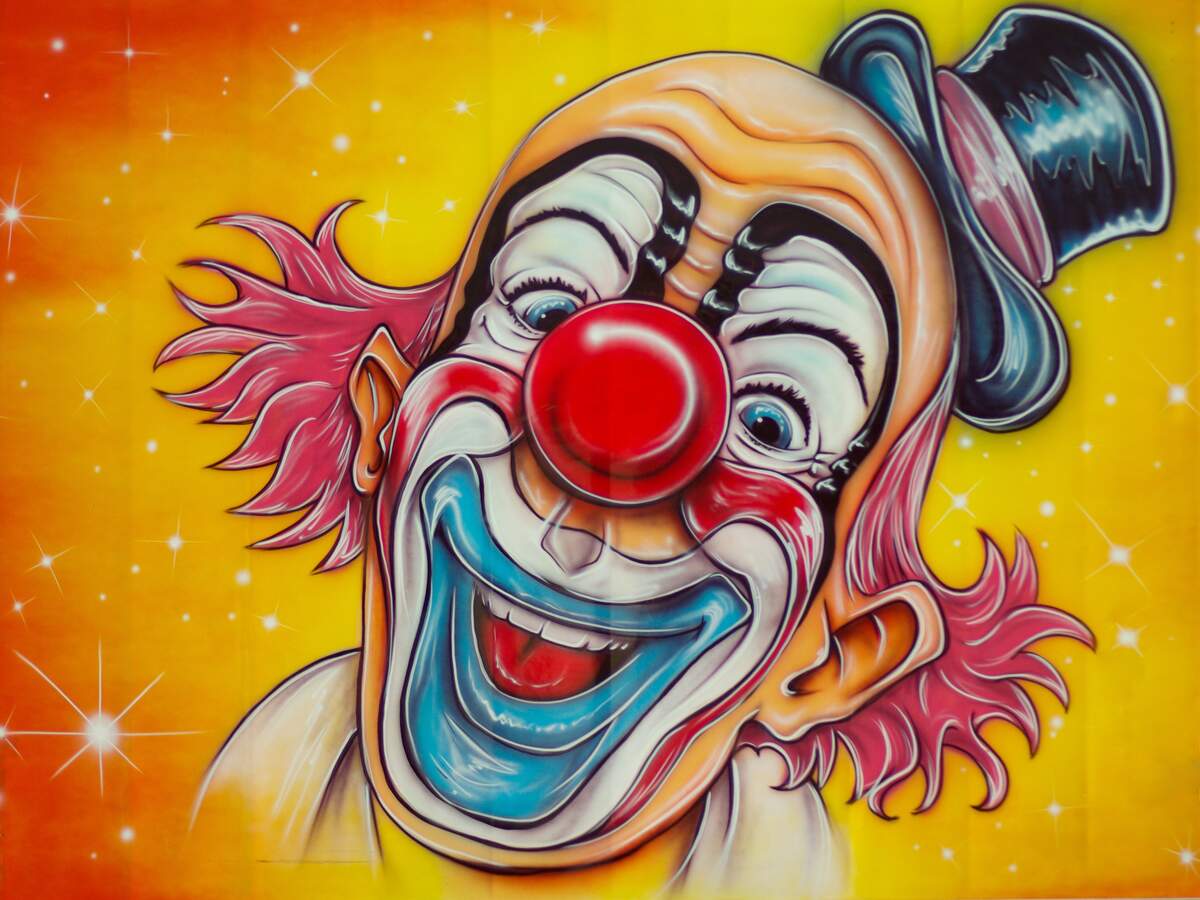

International Joke Day
Author Wayne Reinagel created International Joke Day in 1994. The holiday was originally used to promote his joke books, the first of which was 250 Funniest Office Jokes, Memos & Cartoon Pinups. He chose July 1 as the date because it was the halfway point of the year. In the early years of the holiday, the International Joke Contest also began on the date.
Jokes are a type of humor that use words in a narrative way to make people laugh. They are not to be taken seriously, and a cooperative effort must be put in by both the teller and the audience for them to be effective: both participants must agree that the words being conveyed are part of a joke. To clue a listener in that there will be a joke, framing must take place. Some examples of framing phrases include "Have you heard this one?" and "Reminds me of a joke I heard." A story then builds until it ends with a punchline that gets the listener to laugh. Jokes don't contain extra information—only that which is relevant to get a listener to a punchline is included.
Jokes are often passed down anonymously, and they don't need to be told verbatim. Although many are told orally, they are also passed down in written form. They appear in books, and in recent years have also been widespread on the internet. They are told in private and public settings. A single joke may be told, or a series of jokes may be told by a comedian to an audience. Jokes use puns, sarcasm, irony, and other comedic techniques.
Like they are today, early jokes were written for entertainment and leisure. They weren't designed to be documented, and those that were written down were done so for their immediate use, not for posterity. They then just happened to be passed along. Early jokes weren't necessarily "clean" jokes. The oldest joke is thought to be a Sumerian proverb from 1900 BCE (maybe from as early as 2300 BCE), which translates to: "Something which has never occurred since time immemorial; a young woman did not fart in her husband's lap." Similarly, the second oldest recorded joke isn't necessarily clean either. Dating to around 1600 BCE in ancient Egypt, it goes as follows: "How do you entertain a bored pharaoh? You sail a boatload of young women dressed only in fishing nets down the Nile and urge the pharaoh to go catch a fish."
The oldest existing joke book is Philogelos (translated to The Laughter-Lover), which dates to the fourth or fifth century CE and contains 265 jokes written in Greek. Many modern jokes are based on jokes in this collection. With the advent of the printing press in the fifteenth century, many joke books began being printed, which were known as jestbooks. One of these was a joke anthology book called Facetiae. Written by Poggio Bracciolini, it appeared in 1470. By at least the nineteenth century, jokes began being used as filler in broadsides and chapbooks. Jokes continue to appear in books, magazines, and online. Jokes from all mediums are celebrated on International Joke Day.
How to Observe International Joke Day
Here are some ideas on how to spend the day:
- Learn and tell some jokes or share them online. You could do so by first reading some joke books or by reading jokes online.
- Listen to some jokes. Watch a stand-up comic live, listen to some of the most noteworthy comedy albums, or watch a stand-up comedy special or movie.
- Try your own hand at stand-up comedy.





















